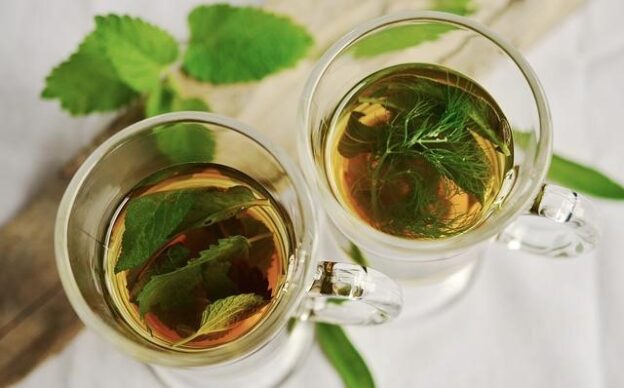Kratom’s legality is a key consideration when shopping for this Asian herb. Despite the growing body of scientific studies and anecdotal reports heaping praises on kratom for its immense therapeutic potential, extracts from the plant are subject to different regulations worldwide.
Certain countries have imposed sweeping bans on kratom, prohibiting access to the herb within their borders. Some nations have also enacted laws that regulate kratom’s possession, whereas others implicitly restrict the plant.
This post shall delve into what the Canadian law says about possessing, using, and distributing kratom. Read on as we unpack everything there is to know about kratom’s legality in Canada.
Is Kratom Legal In Canada?
One of the frequently asked questions by aspiring kratom users in Canada is – is kratom legal in Canada?
The short answer is yes; kratom is perfectly legal in Canada.
Canadian laws do not explicitly ban kratom, a welcome relief for consumers and traders alike. You can possess, use, or distribute kratom across all seven Canadian provinces and three territories.
But that’s not all!
While kratom laws in several countries remain fuzzy, Canada has loudly pronounced its position on this medicinal herb. Relevant government agencies have actively participated in kratom discourses, sometimes going as far as to recall certain kratom brands for potential health concerns.
However, while kratom is legal in Canada, certain regulations govern how such products must be packaged and sold within Canadian borders. To understand those restrictions, it’s important to consider the role of two major industry players – Health Canada and the Canadian Food Inspection Agency (CFIA).
Exploring Health Canada’s Position on Kratom
Health Canada is the main Canadian state department charged with regulating pharmaceutical products in the country. Its core mandate entails enhancing access to high-quality drugs to improve the health and well-being of Canadians.
As kratom is generally considered a medicinal drug, it falls directly under Health Canada’s ambits. The herb doesn’t appear on Canada’s list of Controlled Drugs and Substances, which makes it technically legal for consumption and distribution.
However, Health Canada hasn’t authorized kratom products for medical use. There are two implications to that.
First, kratom shouldn’t be featured as an active ingredient in officially approved pharmaceutical products in Canada. And second, the herb shouldn’t be marketed explicitly as a medicinal drug.
If you operate a kratom venture in Canada, it’s important to avoid words that portray your products as capable of providing definitive pharmacological benefits.
Phrases like “kratom can treat pain” or “kratom will relieve stress” may have you on Health Canada’s crosshairs. Instead, consider alternative non-definitive terms, such as “may soothe body aches” or “might calm nervousness.”
What About the CFIA’s Perspective on Kratom?
The Canadian Food Inspection Agency is a science-backed regulator that mostly concerns itself with food safety. The organisation also publishes and enforces the standards for animal and plant health.
Not only do most people regard kratom as a drug. Extracts from the plant come in diverse preparations, including edible goods.
When sold as an edible, kratom technically qualifies as a dietary supplement. And that subjects it to the CFIA’s regulations.
Like Health Canada, the CFIA hasn’t officially recognized kratom. Therefore, the regulator technically prohibits kratom consumables, such as capsules and gummies.
How to Sell Kratom Legally In Canada
While neither Health Canada nor the CFIA has authorized kratom for consumption, kratom stores in Canada continue to pop up at every turn. That’s partly because both regulators appear to have their guns trained on other more harmful drugs, such as fentanyl.
Besides, kratom vendors have devised several ingenious methods to stay in business without violating the law. One such strategy is adopting a more informative, less promotional marketing tone.
Instead of hyping your kratom products as merely cheaper or better than your competitors, focus on enlightening potential buyers on the herb’s potential therapeutic effects. You could also incorporate useful information on dosage guidelines and delivery methods.
Many stores have also managed to bypass the restriction on consumable kratom goods by offering such products as giveaways.
Simply include your kratom capsules or powders in a package containing other non-kratom items. Then, factor the markup of each kratom product into the non-kratom goods. This way, you can generate meaningful profits from kratom edibles while artfully marketing them as “giveaways.”
Whatever you do, always insist on high-quality kratom supplements. This will help build a loyal clientele and prevent your products from being recalled during routine regulatory checks, as was the case with the Sāj” brand 2018.
One way to vouch for kratom’s quality is to establish how the plant was cultivated. Prioritize organically grown kratom, as such plants tend to produce pure and potent extracts.
Besides, insist on lab-tested products. Lab testing is necessary to provide useful clues on kratom’s potency, its principal bioactive alkaloids, and any additives included in the product.
Lastly, follow all regulatory procedures when importing or exporting kratom in Canada. Since the herb is technically an herbal remedy, it constitutes a Natural Health Product (NHP) and must be imported following the relevant applicable laws.
The Bottom Line
Canada imposes no direct ban on kratom, making the herb legal to possess, use, and distribute within the country’s borders. However, Health Canada and the Canadian Food Inspection Agency spell out guidelines on the kratom formulations that vendors can sell and how such products must be packaged.
While end users aren’t affected directly by kratom regulations in Canada, it’s prudent to familiarise yourself with the law if you intend to set up a kratom business in the country.








